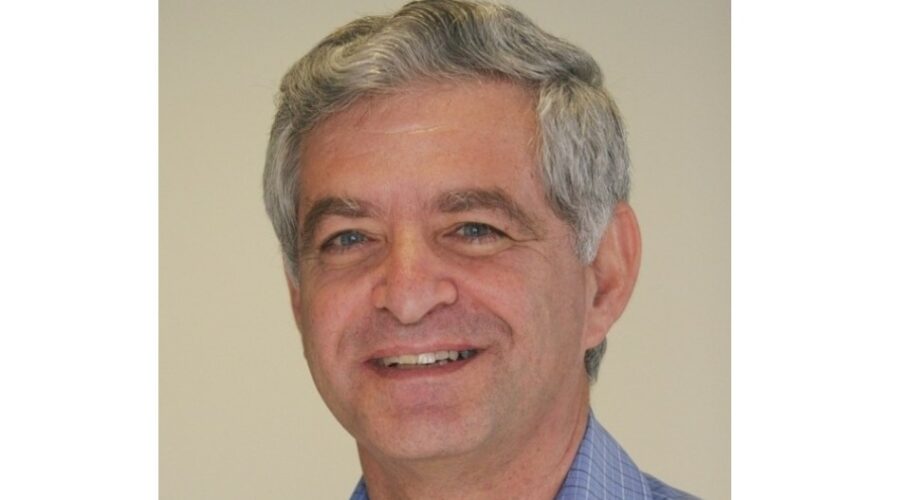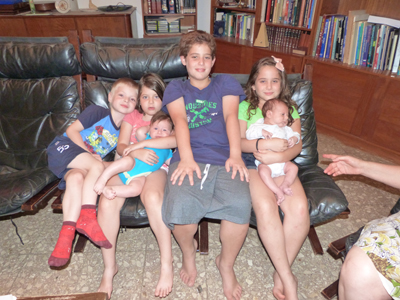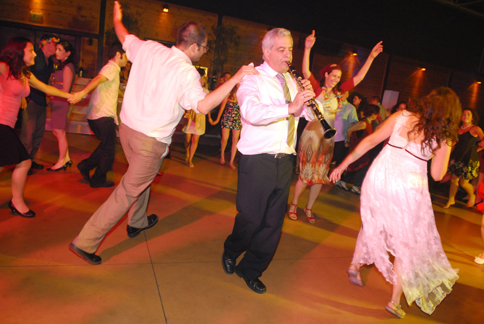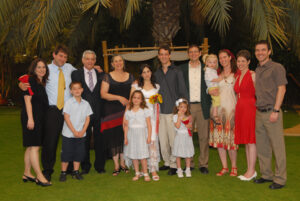IMDEA Networks

"Si quieres triunfar como investigador debes tener cualidades para la investigación y ser un apasionado de la ciencia"
14 Marzo 2013

Entrevista a Shmuel Zaks, Cátedra de Excelencia, Departamento de Ingeniería Telemática, Universidad Carlos III de Madrid; Investigador Visitante, Institute IMDEA Networks; Chair Professor of Computer Science, Technion, Israel.
1. Para empezar esta entrevista, nos gustaría conocer cómo nació su vocación científica ¿Cuándo y por qué decidió que quería ser científico?
Si te gusta resolver problemas, ser tu propio jefe, si disfrutas enseñando a tus alumnos y supervisando a estudiantes de posgrado, si te agrada colaborar con colegas en todo el mundo con los que compartes la misma pasión por la investigación, no hay ningún trabajo mejor que el de profesor universitario, porque te da la libertad para hacer todo eso y disfrutar con ello. Yo he ido descubriendo cuánto me gustaba a medida que iba avanzando en mis estudios y cuando decidí cursar el doctorado, lo hice con la firme intención de orientar mi carrera profesional hacia el mundo académico. Gracias a Dios, y a algunas personas más, creo que mi decisión fue acertada.
2.¿Cuál es su formación y trayectoria como investigador? ¿A qué instituciones ha estado vinculado hasta ahora?

Cursé estudios universitarios en matemáticas en la Technion de Israel, me atrajo especialmente el campo de la matemática discreta, así que hice mi tesina sobre Teoría de Autómatas, también en la Technion. Por entonces (principios de los 70), los departamentos de informática apenas estaban empezando a aparecer. Luego me fui a hacer el doctorado en Informática en la Universidad de Illinois, en Urbana-Champaign, EEUU, donde aprendí los fundamentos del trabajo de investigador. Para ser más exactos, si quieres triunfar como investigador, debes tener unas ciertas cualidades naturales necesarias para la investigación y ser un apasionado de la ciencia. El doctorado me permitió descubrir que tenía esas cualidades y desarrollar una metodología como investigador.
Desde entonces, y han pasado ya más de treinta años, he estado trabajando en áreas teóricas que abarcan desde la matemática discreta a la teoría de grafos, la informática distribuida, la combinatoria y las redes informáticas. Pero en nuestra profesión no basta con tener una buena base teórica. Debes mantenerte siempre al día, y la mejor manera de hacerlo es colaborando con otros colegas y supervisando a estudiantes. He tenido la fortuna de conocer a excelentes colegas de todo el mundo y colaborar con ellos, y de supervisar a magníficos alumnos de pregrado y posgrado. Esos colegas y esos alumnos son, sin lugar a dudas, lo que me ha hecho mantener mi entusiasmo por la investigación durante toda mi carrera.
3. ¿En qué circunstancias surgió la posibilidad de venir a trabajar a Madrid?
Conocía desde hace años a varios investigadores de la Universidad Politécnica de Madrid, la Universidad Rey Juan Carlos e IMDEA Networks, e incluso llegué a visitarlos dos veces en los tres últimos años. Me otorgaron una Cátedra de Excelencia en la Universidad Carlos III de Madrid (UC3M), y ahora estoy encantado de repartir mi tiempo entre la UC3M e IMDEA Networks y poder colaborar con muchos investigadores.
4. ¿Qué es lo que más le ha interesado del proyecto IMDEA y qué determinó su incorporación?
Mis anteriores visitas a Madrid me permitieron conocer de primera mano el entorno investigador que han establecido en Institute IMDEA Networks. Y hubo dos aspectos que me resultaron muy motivadores: en primer lugar, el instituto alberga a muchos estudiantes de doctorado e investigadores jóvenes; en segundo lugar, todos ellos proceden de países distintos y poseen intereses muy variados. Por eso me ha parecido un centro de investigación excelente y dinámico y, en particular, un lugar ideal para visitantes. Pensé que sería un reto venir a trabajar a este entorno tan dinámico y acogedor
5. ¿En qué líneas de investigación va a trabajar y qué resultados concretos espera alcanzar?

Mi intención es seguir con mis estudios en mis áreas de especialidad, sobre todo en el campo de los problemas de optimización y en el uso y diseño de redes ópticas, área en la cual confío en colaborar con otras personas con los que comparta intereses similares en el ámbito de la investigación. Pero, sobre todo, espero colaborar con los participantes en otros proyectos que ya están en marcha dentro de IMDEA Networks, a los que intentaré aportar lo que yo sé.
Los conocimientos que he adquirido a lo largo de mi carrera me permiten explorar un problema desde muchas de sus vertientes algorítmicas, por ejemplo en lo relativo a la complejidad, el diseño y el análisis de algoritmos, los algoritmos de aproximación y los algoritmos secuenciales (“online”). Todos los proyectos en marcha en IMDEA Networks están relacionados con el campo de las redes en general y la mayoría de ellos, si no todos, comprenden también aspectos algorítmicos. Confío en poder incorporarme a este tipo de proyectos, a los cuales puedo aportar mi experiencia. El hecho de no estar todavía asociado a ninguno en concreto, me permite participar en muchos proyectos ya en marcha, así como establecer varias colaboraciones en investigación sobre materias de interés mutuo.
6. ¿Conocía España antes de su incorporación a IMDEA? ¿Qué es lo que más le gusta de Madrid?
He viajado por toda España y he visto la mayoría de sus atracciones turísticas. Aparte de Madrid y Barcelona, he conocido las ciudades más famosas del sur, todo el norte (llegando incluso hasta Santiago de Compostela) y otros lugares. Habiendo estudiado muchas partes de la historia europea, la verdad es que me ha resultado muy interesante visitar sitios que conocí en los libros y, al ser judío, también ha sido muy emocionante visitar lugares tan anclados en la historia de mi pueblo como Córdoba y Toledo.
En cuanto a Madrid… bueno, ‘El amor es ciego’. Uno se enamora de esta ciudad en cuanto la conoce, es inevitable; pero no es fácil encontrar un solo motivo. Cada vez que paseo por sus calles, pienso que es una de las capitales más impresionantes del mundo. ¿Será por su maravilloso diseño, que te transmite una sensación de grandeza cuando caminas por sus parques y avenidas? ¿Será por la preciosa arquitectura que ves por todas partes? ¿O tal vez por la riquísima vida cultural y la cantidad de centros culturales que hay por todos lados, entre ellos algunos de los mejores museos del mundo? Supongo que la respuesta es una combinación de todo esto. Pero estoy seguro de que Madrid no sería lo que es sin la calidez de su gente, sin su carácter extremadamente abierto y acogedor, sin su pasión por la vida, la alegría y la felicidad. Me siendo enormemente afortunado de haber podido realizar esta larga visita a España y en especial de haber venido a Madrid. Y, antes de terminar, quisiera aprovechar la oportunidad para dar las gracias a todos los que han hecho posible esta visita.

Lo más importante en mi vida (antes incluso que mi carrera profesional) es mi familia, que alcanzó su máxima expresión hace un par de años cuando tuvimos cuatro nietos. Y, dentro de mi familia, las personas más importantes hoy en día son mis seis nietos, que aparecen en la primera foto. Y mi mayor afición es tocar el clarinete, como se ve en la segunda foto.
Más información:
- Madri+d Notiweb: Entrevista


Comentarios recientes